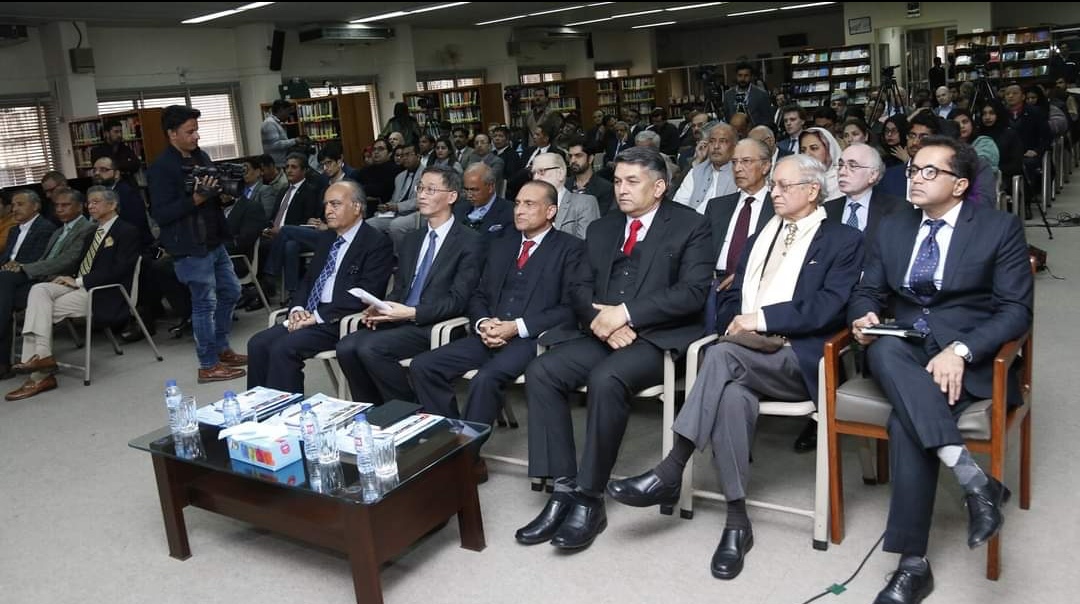Backbone of the nation bears load
Party has never eased up in quest to lift up the people, Pakistani scholar says


Systematic manner
Shabbir says he has found that the CPC members he has met always work in a systematic manner to pursue the goals put in place by the leadership and that their dedication to work is admirable.
The China-Pakistan Study Centre was inaugurated at the Institute of Strategic Studies Islamabad in June 2017. As the director of the think tank, Shabbir oversees research and advocacy in all facets of bilateral relations.
In January 2019, the center launched a quarterly magazine called PIVOT; Shabbir serves as the chief editor. Its aim is to provide regular updates and analysis of the relationship between China and Pakistan as well as promote mutual understanding at the people's level.
In a special edition of the magazine published in October 2019-when the People's Republic of China celebrated the 70th anniversary of its founding-Shabbir wrote: "Though bilateral ties between China and Pakistan were established in 1951… historical linkages between the two nations date back to thousands of years when an adoring homage was paid to areas that now form part of Pakistan."
Shabbir says he focuses on Pakistan-China relations because he thinks that the connections between the neighbors are vital for the prosperity of their peoples.
"China has been always helpful to Pakistan in political, strategic and economic domains," he says. "Particularly, the defense cooperation with China has added considerably to Pakistan's defense capabilities."
"As President Xi Jinping pointed out, China-Pakistan relations should be a model of a good, neighborly friendship, a pillar of regional peace and stability, and a benchmark for international cooperation under the BRI."
The scholar believes that the China-Pakistan Economic Corridor, or CPEC, a flagship project under the BRI to improve regional connectivity, will always play a leading role in moving BRI cooperation toward high-quality development.
In doing so, it will bring more benefits to the peoples of both countries and contribute to regional prosperity.
Noting that half of the early-harvest projects have been completed and the remaining projects are under smooth construction, Shabbir says the CPEC has entered a new stage of expansion.
CPEC, a corridor linking the Gwadar port in southwestern Pakistan with Kashgar in Northwest China's Xinjiang Uygur autonomous region, highlights energy, transport and industrial cooperation. The corridor is a major pilot project under the BRI.
In December, Asim Saleem Bajwa, chairman of the CPEC Authority, says the CPEC is expanding into its second phase as scheduled, despite the serious setback posed by the COVID-19 pandemic globally, Bajwa was quoted as saying by the Xinhua News Agency.
"We look at this phase as a hope as it will improve people's livelihood. It helps address the social-economic problems that we face in Pakistan," says Shabbir, who expects the second phase of the economic corridor to generate more job opportunities, boost economic activities and support growth in industries.
Besides the economic benefits, he says the CPEC will also help bring peace and stability in the region.
Saying that he foresees "a very bright future" for China under the CPC's leadership, Shabbir says he believes the relationship between China and Pakistan will also remain cordial.
This year marks the 70th anniversary of the establishment of diplomatic ties between China and Pakistan. Shabbir says he expects Pakistan-China relations to further strengthen, especially with economic initiatives like CPEC that will bring them to a new height.
"It is a very important time that China and Pakistan should be together to not only help each other economically, but also to support each other politically," Shabbir says.























